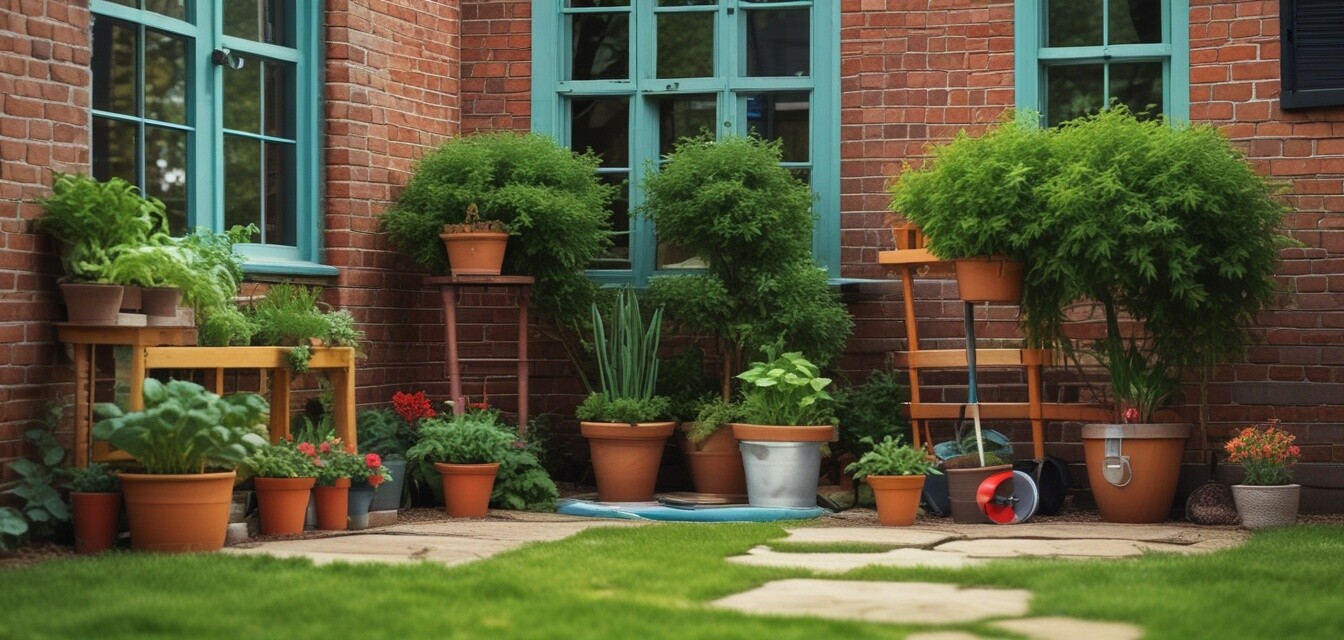
The rise of plant-based sustainable gardening
Key Takeaways
- Plant-based sustainable gardening emphasizes the use of organic materials and practices.
- This method improves soil health and reduces the carbon footprint.
- It promotes mental well-being and physical health through gardening activities.
- The trend is growing due to increased awareness of environmental issues.
- Embracing sustainable gardening can lead to cost savings and nutrient-rich produce.
As society becomes more environmentally conscious, a growing trend is emerging in the gardening world: plant-based sustainable gardening. This practice not only contributes positively to the environment but also enhances the health of individuals and communities. Let’s explore this trend and discover its benefits, practices, and how you can get involved.
What is plant-based sustainable gardening?
Plant-based sustainable gardening is an approach that focuses on growing plants in an environmentally friendly manner. This method advocates for the use of organic materials, composting, and the reduction of chemical fertilizers and pesticides. It aims to create a self-sustaining ecosystem that benefits both the garden and the wider environment.
Benefits of plant-based sustainable gardening
| Benefit | Description |
|---|---|
| Improved soil health | Uses organic compost and mulch to enhance soil structure and fertility. |
| Reduction in chemical use | Minimizes reliance on harmful pesticides and fertilizers, promoting a healthier environment. |
| Cost savings | Utilizes natural resources and reduces the need for store-bought products. |
| Community engagement | Encourages local initiatives and sharing of resources among gardeners. |
| Health benefits | Promotes physical activity and mental well-being through gardening. |
Steps to embrace plant-based sustainable gardening
Transitioning to a more sustainable gardening practice can be an enriching experience. Here’s how to get started:
- Educate yourself: Learn about sustainable gardening practices through books, online resources, and community workshops.
- Start small: Begin with a small plot or container garden to experiment with organic methods.
- Utilize compost: Begin composting kitchen scraps and yard waste to create nutrient-rich soil for your garden.
- Select native plants: Choose plants that are adapted to your local climate and soil conditions, reducing the need for excessive watering and care.
- Implement water-saving techniques: Use innovative irrigation systems like drip irrigation or rainwater collection to conserve water.
Innovative tools for sustainable gardening
Modern technology is helping gardeners adopt sustainable practices more easily. Here are some innovative gardening tools to consider:
| Tool | Description |
|---|---|
| Soil Test Kits | Help assess soil health and determine nutrient needs. |
| Smart Irrigation Systems | Automatically adjusts watering schedules according to weather conditions. |
| Compost Bins | Facilitates easy composting of organic waste. |
| Vertical Garden Kits | Allow for growing plants in limited spaces, ideal for urban gardeners. |
Sustainability trends influencing gardening
The shift towards sustainable gardening is influenced by several trends:
- Organic gardening: A large part of sustainable gardening focuses on organic practices.
- Permaculture: Designing gardens to mimic natural ecosystems.
- Community gardens: Promoting local food production and collaboration.
- Edible landscapes: Incorporating fruits and vegetables into ornamental gardening.
Getting involved in your community
Becoming part of a community garden or participating in local gardening groups can enhance your experience. This fosters connections with like-minded individuals who share a passion for sustainable practices. Check out local gardening events or workshops to get involved.
Resources for plant-based sustainable gardening
To further enhance your knowledge and gardening experience, consider visiting the following sections of our website:
- Eco-Friendly Fertilizers
- Greenhouses & Plant Protection
- Garden Tools
- Buying Guides on sustainable products
- Garden Inspiration for innovative ideas
Tips for beginners
- Start by learning about the best plants for your local climate.
- Embrace trial and error to find what works best for your gardening space.
- Connect with local gardening clubs for support and advice.
Pros
- Enhances biodiversity in the garden.
- Reduces water usage and pollution.
- Creates a beautiful and productive garden space.
Cons
- May require more time and effort than traditional gardening.
- Initial cost for organic materials may be higher.
- Not all plants may thrive without chemical support.
Final thoughts
Plant-based sustainable gardening is more than just a trend; it's a commitment to nurturing the environment while enhancing your gardening experience. By adopting these practices, you contribute to a healthier planet and create a more enriching outdoor space. Whether you are a seasoned gardener or just starting your journey, embracing these principles can lead to a flourishing garden and a more sustainable lifestyle.